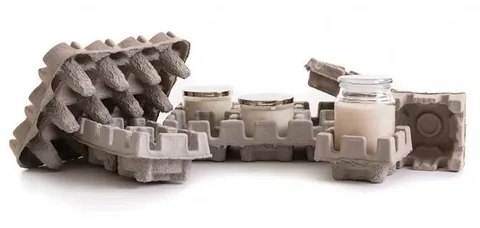Understanding the Environmental Impact of Molded Pulp Support
Molded pulp support refers to packaging or protective materials crafted from recycled paper, cardboard, or natural fibers.

The growing emphasis on sustainable practices has made industries rethink packaging and support materials. Molded pulp support has emerged as a leading eco-friendly alternative to traditional materials like plastic or Styrofoam. This article delves into the environmental impact of molded pulp support, highlighting its advantages, challenges, and future implications.
What Is Molded Pulp Support and Why Is It Eco-Friendly?
Molded pulp support refers to packaging or protective materials crafted from recycled paper, cardboard, or natural fibers. It is designed to secure and cushion products during transportation and storage. Unlike single-use plastics, molded pulp support is biodegradable, compostable, and made from renewable resources. This makes it an excellent solution for companies seeking to reduce their ecological footprint.
The eco-friendly nature of molded pulp support stems from its lifecycle. From production to disposal, its environmental impact is minimal. The manufacturing process uses water, paper, and minimal energy, ensuring sustainability. Once discarded, molded pulp decomposes naturally within a few months, unlike plastics that linger in the environment for centuries, contributing to pollution.
Reducing Waste Through Recyclable and Biodegradable Solutions
One of the biggest environmental benefits of molded pulp support is its contribution to waste reduction. Molded pulp is often made from post-consumer waste like newspapers or corrugated cardboard, transforming potential trash into a useful product. This recycling process not only saves resources but also reduces the volume of waste sent to landfills.
Additionally, the biodegradability of molded pulp support ensures it leaves no harmful residues behind. Whether composted at home or left in the natural environment, it breaks down into organic matter. This quality makes it ideal for businesses aiming to align their practices with circular economy principles while providing a practical, protective packaging solution.
Energy Efficiency and Reduced Carbon Emissions
Compared to plastic packaging, the production of molded pulp support requires significantly less energy. Traditional plastic manufacturing is energy-intensive and relies on fossil fuels, releasing large amounts of greenhouse gases. In contrast, molded pulp production utilizes renewable energy sources and has a lower carbon footprint.
Moreover, molded pulp support can be locally produced, reducing the need for long-distance transportation. This not only decreases carbon emissions but also supports local economies. The combined effect of lower energy requirements and reduced transportation emissions makes molded pulp an environmentally responsible choice for packaging solutions.
Challenges and Areas for Improvement in Molded Pulp Support
While molded pulp support offers many environmental advantages, there are challenges to its widespread adoption. One concern is the water usage involved in the production process. Although most of the water can be recycled, the process still requires substantial amounts of clean water, which could strain resources in regions facing water scarcity.
Another area for improvement is its durability. While molded pulp support is excellent for cushioning and securing products, it may not be suitable for heavy or high-impact applications. Innovations in material science are needed to enhance its strength and versatility without compromising its eco-friendly characteristics.
The Future of Molded Pulp Support in Sustainable Packaging
As environmental regulations become stricter, the demand for sustainable packaging like molded pulp support is expected to grow. Governments and businesses alike are investing in research to improve the efficiency and applications of molded pulp. For instance, advancements in manufacturing technology are helping reduce production costs, making it a viable option even for small-scale enterprises.
Furthermore, consumer awareness about environmental issues is driving preference for products with eco-friendly packaging. Molded pulp support aligns perfectly with this trend, offering a practical solution for businesses to demonstrate their commitment to sustainability. With continuous innovation, molded pulp support could play a pivotal role in reducing the global reliance on harmful materials like plastic.
Conclusion
Molded pulp support exemplifies how sustainable practices can positively impact the environment without compromising functionality. Its biodegradability, recyclability, and low energy requirements make it a frontrunner in eco-friendly packaging solutions. Despite minor challenges, its potential for widespread adoption is immense, offering hope for a greener future. By embracing molded pulp support, businesses can actively contribute to reducing environmental degradation while meeting consumer expectations for sustainability.
What's Your Reaction?




















